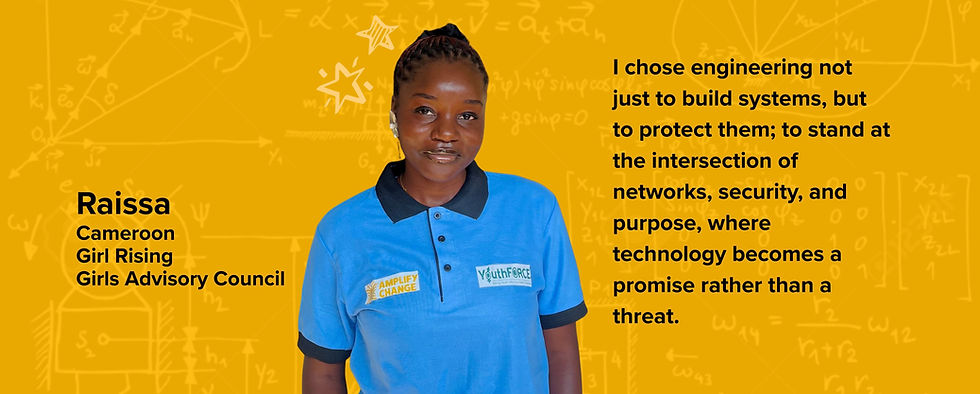Freedom, Choice, and the Hijab
- Oct 7, 2023
- 3 min read
Updated: Oct 8, 2023
By Khuzama Khan, Director of Program Quality and Learning

Just over a year ago, we witnessed the tragic death of Mahsa Amini while in Iran's morality police custody, accused of violating hijab laws. Now, the world's attention turns to the plight of 16-year-old Armita Geravand, currently in a coma. Surveillance cameras in Tehran's subway system captured a harrowing sequence: Armita, her short black hair uncovered, boarding a train early one Sunday morning, only to be removed moments later, unconscious on the train platform. The exact events inside the train remain shrouded in secrecy. The government has withheld footage from public view. It’s the story of another metro station, another hospital, and another family filled with grief, all fueling further collective outrage.
The compulsory hijab laws in Iran cast a shadow over every facet of a woman's public life - impacting employment, education, healthcare, and even the simple act of stepping outside her home - but this issue extends far beyond matters of fashion or resistance against oppression. The anger and outrage we all feel about this treatment of women is fundamentally about women reclaiming their rights and challenging deeply ingrained gender norms that have for too long dictated women's lives in Iran and beyond.

Twenty-five years ago, at the age of 15, I made the personal choice to wear the hijab. I held onto this choice for 23 years purely based on my personal preference. No one requested that I do so. Whether as the MVP of my college basketball team or traveling the world, I never felt constrained by the hijab. Even at 15, I understood that the hijab was merely an article of clothing, not a ticket to heaven or a divine mandate dictating the course of my life. Growing up as a young Muslim girl in Pakistan and now as a professional in Canada, I always believed in my right to choose. Just a few years ago, I exercised that right again by choosing to stop wearing it. Without the hijab, my core beliefs, values, and perspectives on religion, human rights, patriarchy, climate change, and the joys of mint chocolate chip ice cream remained unchanged.
However, for women in Iran, India, France, and numerous other places, this right to choose the hijab or not is brutally infringed upon. My greatest privilege growing up was having parents who raised their daughters as independent thinkers and confident decision-makers. My father always encouraged us to weigh all aspects before making decisions and stand by them. At the age of 38, when I no longer identified with the person in a photo of myself wearing the hijab, I made the choice to remove it. Had I been in Iran, I might have found myself in a hospital, fighting for my life.
No religion grants anyone the authority to trample on people's rights and take pride in it. Religion is profoundly personal, based on individual beliefs and understanding. When self-proclaimed representatives of God manipulate religion to align with their political agendas, we witness the birth of ideologically stunted societies where individuals face only two choices: submission and fear or rebellion and protest. As a Pakistani poet astutely remarked, it becomes challenging for humans to coexist in such "towns of gods."
While I'd typically emphasize hope, at this moment, my anger is taking up all available space, pushing out any feeling of hope. But I intend to channel this anger into raising my voice through every available medium and platform.
To all those entrusted with educating and nurturing children and young people, I implore you to recognize that raising a child is more than a personal duty; it's a social responsibility. My plea is for you to instill in them the values of coexistence and the celebration of differences rather than fearing them. I urge you to lead by example and practice what you teach.




Comments